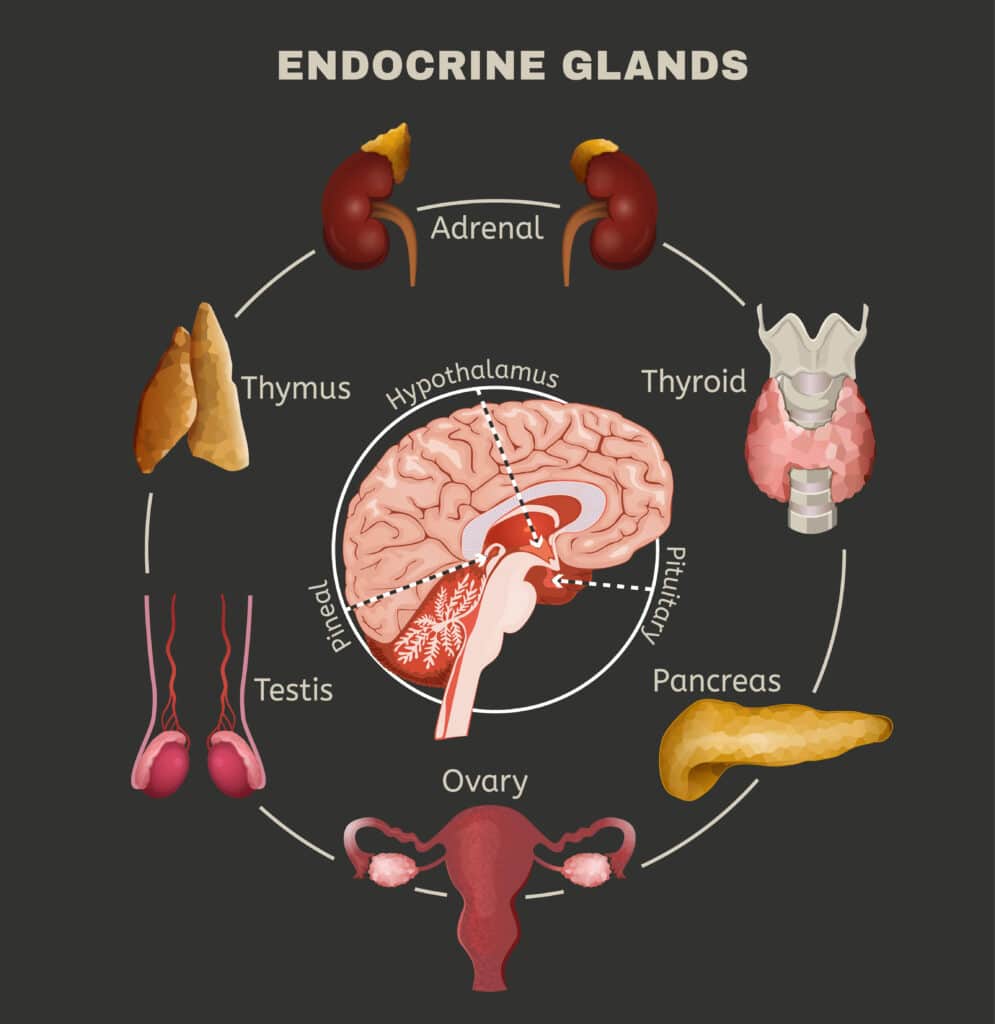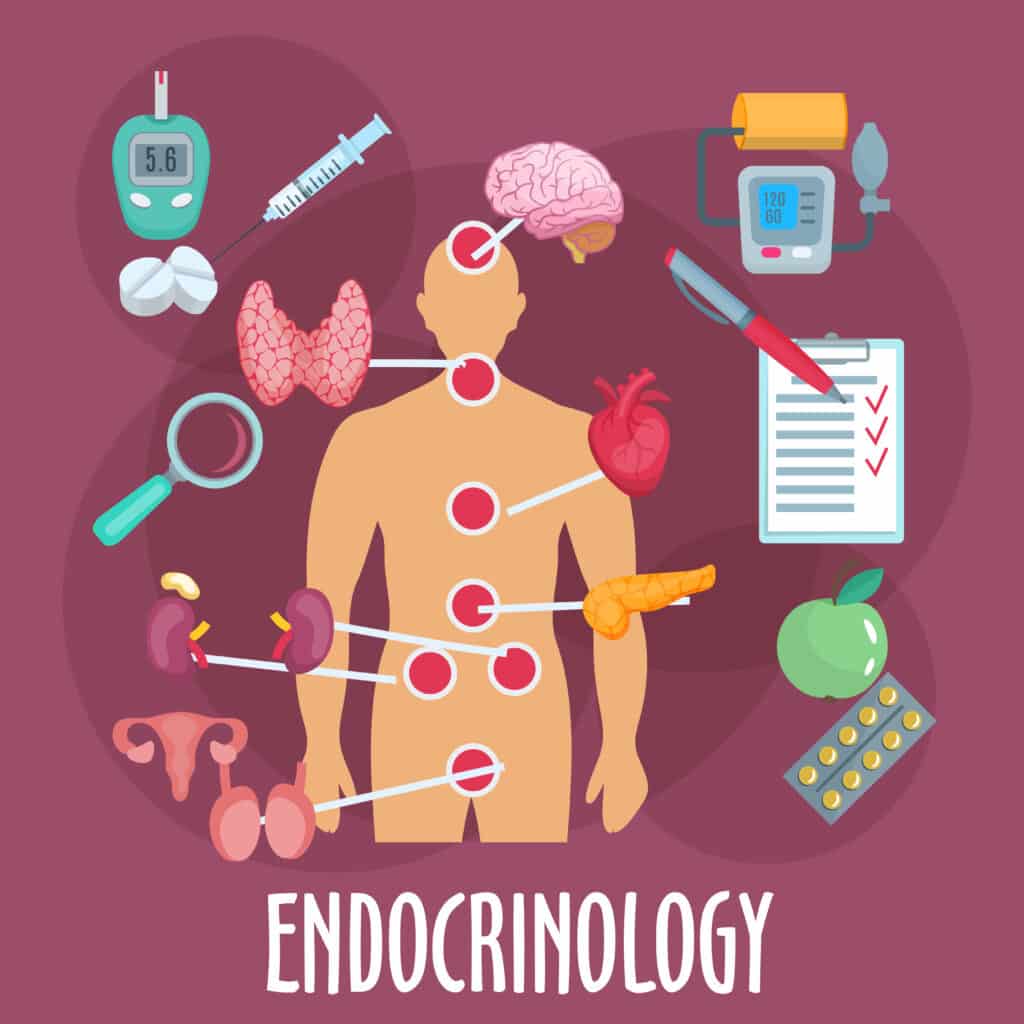The endocrine system is a complex network of glands and hormones that work together to regulate numerous bodily functions. It influences mood, metabolism, growth, sleep, and many more aspects of health. When the endocrine system becomes imbalanced, it can lead to numerous health issues — this is where hormone replacement therapy comes into play.
In this comprehensive guide, we’ll dive into the complexities of the endocrine system and how hormone replacement therapy can help restore harmony when imbalances occur.

Understanding the Endocrine System
The endocrine system is responsible for communication between various parts of the body. It consists of a collection of glands that secrete hormones directly into the bloodstream. These hormones are chemical messengers that carry vital instructions to organs and tissues, ensuring the body functions properly.
Let’s take a closer look at the key components of the endocrine system:
- Glands: The endocrine system is made of several different glands that are found throughout the body. The major glands are the thyroid, parathyroid, pancreas, adrenal, pituitary, and ovaries or testes.
- Hormones: Common hormones produced by the endocrine system include adrenaline, estrogen, testosterone, insulin, and thyroid hormones. Each of these hormones regulates different physiological processes.
- Target organs: Once hormones are released into the bloodstream, they travel to their target organs and tissues. These organs have specialized receptors that recognize and respond to specific hormones.
Common Endocrine Disorders

Imbalances throughout the endocrine system can occur for many reasons, resulting in a range of disorders. Some of the most prevalent endocrine disorders are:
- Hypothyroidism: This is a condition in which the thyroid gland doesn’t produce enough thyroid hormones, leading to weight gain, fatigue, and cold intolerance.
- Hyperthyroidism: This is the opposite of hypothyroidism. When the thyroid gland over-produces hormones, it can cause symptoms like anxiety, weight loss, and increased heart rate.
- Diabetes: This condition is characterized by an inability of the body to properly regulate blood sugar levels. In Type 1 diabetes, this is due to insufficient insulin production, and in Type 2 diabetes, it’s related to insulin resistance.
- Adrenal disorders: Conditions like Cushing’s syndrome or Addison’s disease are the result of abnormalities in the adrenal glands, leading to various symptoms, including hormonal imbalances and fatigue.
- Polycystic ovary syndrome (PCOS): PCOS is a common condition in women and involves hormonal imbalances that lead to irregular periods, infertility, and other symptoms.
Treating Hormone Imbalances
Hormone replacement therapy is a medical treatment used to address hormonal imbalances. It involves the introduction of synthetic or bioidentical hormones into the body to restore hormonal equilibrium. It’s commonly used to alleviate the symptoms associated with menopause, andropause, or other conditions.
Before starting hormone replacement therapy, healthcare providers will conduct thorough evaluations. These assessments may include blood tests to measure hormone levels and assess the patient’s overall health. Then, based on their evaluation, they will create a personalized hormone replacement therapy plan, including the types of hormones to be administered and in what doses.
Hormone replacement therapy can be administered in various forms, including patches, pills, creams, injections, and gels. The method suitable for each patient depends on their specific needs and preferences. To ensure the safety and effectiveness of the treatment, healthcare providers will regularly monitor hormone levels and other health indicators.
Benefits of Hormone Replacement Therapy

For individuals suffering from hormonal imbalances, hormone replacement therapy offers a multitude of benefits, including:
- Symptom relief: To relieve symptoms associated with hormonal imbalances, hormone replacement therapy is a highly effective treatment option. These symptoms include hot flashes, low energy, and mood swings, among others.
- Bone health: Hormone replacement therapy can help maintain bone density in postmenopausal women, reducing their risk of developing osteoporosis.
- Cardiovascular health: By improving cholesterol levels and reducing the risk of heart disease, hormone replacement therapy supports cardiovascular health.
- Mood and cognitive function: Many individuals find that hormone replacement therapy positively impacts their mood and cognitive function, providing relief from depression and memory issues.
Risks and Considerations
Although hormone replacement therapy is widely considered to be safe, it’s essential to consider potential risks and side effects:
- Cancer risk: Some studies have suggested a slight increase in the risk of uterine and breast cancer for women undergoing hormone replacement therapy, but the overall risk is relatively low.
- Cardiovascular risk: Depending on the individual and the type of hormone therapy used, the impact on their cardiovascular system may vary.
- Blood clot risk: In some individuals, hormone replacement may slightly increase the risk of blood clots.
To minimize some of these concerns, healthcare professionals carefully consider whether the risks outweigh the benefits and tailor treatment to the patient’s specific needs.
Support Your Endocrine Health at Elevate Wellness and Vitality
If your endocrine system could use some support, schedule an appointment with the experts at Elevate Wellness and Vitality today. With our help, you can embark on a journey to alleviate the symptoms of hormonal imbalance and improve your overall wellness.

